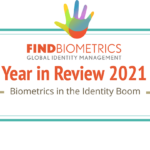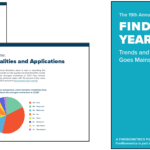According to a new survey, the ongoing COVID-19 pandemic has caused a considerable and favorable shift in consumer sentiment toward the use of biometric technology.

GetApp’s Biometric Data Survey found that the ever-increasing proliferation and ease of use of various biometric technologies such as facial and fingerprint recognition, as well as iris scanning, resulted in 46% percent of respondents saying that the pandemic has been made easier for them because of biometrics.
Though confidence in various biometric modalities has grown — with facial recognition and iris scans having seen 38% and 31% growth in consumer comfort respectively since 2020 — GetApp does note that consumer concerns still exist.
“There’s little doubt that the utility offered by biometrics during the pandemic finally pushed the technology into mainstream adoption,” said Zach Capers, Senior Security Analyst at GetApp. “But trust issues remain depending on the type of biometrics, who’s using the technology, and what they’re using it for.”
Among the concerns expressed through the study, GetApp found that 69% of respondents named data breaches as their greatest concern, with 62% also worried about invasion of privacy.
Based on these concerns, it is of little surprise then that 85% of GetApp’s respondents said that they believe the use of biometric data should be regulated by law, with a sizable portion of them saying they are only comfortable when sharing their biometric data in certain security situations, such as passport control.
Finally, the survey results also place emphasis on the importance of transparency for businesses that either use biometrics or are considering their implementation into their practices.
GetApp cautions that while consumers have grown more comfortable and open to the use of biometric technology for its ease of use and the convenience it can offer, they are still cautious when it is applied beyond security purposes and so businesses need to demonstrate both the value of biometric data collection and the secure, transparent and equitable manner in which it’s collected.
–
February 24, 2022 —by Tony Bitzionis




![[Sessions Added] REPLAY: Travel & Hospitality Virtual Identity Summit](https://idtechwire.com/wp-content/uploads/maeva-vigier-airport-unsplash-150x150.jpg)


Follow Us